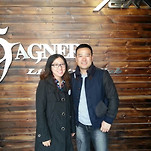|
제 2 장 관 사(Article) 관사 : 형용사의 일종으로 부정관사(a, an)와 정관사(the)가 있다. a는 자음으로 시작되는 말 앞에, an은 모음으로 시작되는 말 앞에 쓴다. ex) a pencil, a desk ; an umbrella, an animal ※ 그러나 철자가 자음으로 시작되지만 모음으로 발음되는 낱말 앞에는 'an'을, 철자가 모음으로 시작되지만 자음으로 발음되면 'a'를 붙인다. ex) an hour, an honest boy ex) a useful animal, a university 1. 不定冠詞의 용법 (1) 단수 보통명사 앞에서 막연히 [하나의] 뜻으로 쓰임- 해석 불필요 ex) He is an honest boy. (2) one(하나)의 뜻- 해석 필요 ex) There are twelve months in a year. Rome was not built in a day. (3) 대표단수, any, some(어떤-라도, -라는 것)의 뜻-어떤 종류 전체를 대표하는데, 이 경우를 대표단수라 함 ex) Wait here for a while, please. (some의 뜻) ex) A fox is a cunning animal. (대표단수) (4) a certain(어떤)의 뜻 ex) An old man came to see you. I met a Smith there. (5) per(-에 대해, -마다) ex) I write to my parents twice a month. We work eight hours a day. (6) the same(같은)의 뜻 ex) They are not of an age. 2. 定冠詞의 용법 정관사는 자음 앞에서는 [더], 모음 앞에서는 [디]로 발음 (1) 앞에 나온 명사가 뒤의 문장에 다시 나올 때 ex) He gave me a book. The book is very interesting. (2) 서로 알고 있는 것을 가리킬 때 ex) Would you please open the window? (3) 수식어구로 한정될 때 ex) The books on the desk are mine (4) 세상에서 유일한 것 ex) the moon, the sun, The world is changing. (5) 서수나 최상급, same, only, last 의 앞 ex) He received the first prize in the speech contest. She is the tallest girl in her class. I have the same watch as you have. (6) 종족 전체를 대표할 경우, 기계, 발명품, 악기명 앞에. ex) The dog is a useful animal. [the + 단수 보통명사] A dog is a useful animal. [a + 단수 보통명사] Dogs are useful animal. [복수 보통명사] ex) Does she play the piano well? (악기명) Edison invented the gramophone. (발명품) cf. They are students of our school.(일부분의 학생들) They are the students of our school.(전교생) (7) 대명사의 소유격 대신에 the를 씀 ex) He caught me by the hand. Uncle patted me on the shoulder. (8) the + 형용사 = 복수 보통명사 the + 복수보통명사 = 추상명사 ex) You must kind to the old. (old people) The pen mightier than the sword. (文의 힘, 武의 힘) (9) 慣用語句(주로 시간, 수량 단위) ex) in the morning, in the park, in the sky, on the farm 등 ex) They are paid by the month(or week). Sugar is sold by the pound. 3. 정관사와 고유명사 (The + 고유명사) 고유명사 앞에는 원칙적으로 관사를 붙일 수 없으나, 다음과 같은 경우는 예외로 붙인다. (1) 관공서나 공공건물의 이름 ex) the White House, the National Museum cf. 역명‧공원명‧호수명에는 일반적으로 the를 붙이지 않는다. ex) Seoul Station, Namsan Park, Lake Como Pagoda Park is in Seoul, you know. (2) 강‧바다 이름 앞에는 the를 붙인다. ex) the Thames, the Pacific (Ocean) (3) 산맥‧반도 이름 앞에 the를 붙인다. ※ 그러나 산 이름에는 붙이지 않는다. ex) the Rocky Mountain the Malay Peninsula ex) Mt. Everest. Mt. Baekdu (4) 신문‧잡지‧배 이름 등에 the를 붙인다. ex) the New York Times the Digest, the Mayflower(메이플라워 호) (5) 나라이름(복수국가)에 the를 붙이기도 한다. ex) the United States of America, the Netherlands (6) 唯一無二한 것에는 the를 붙인다. ex) The sun is much larger than the moon. 4. 관사의 위치 (1) so, as, too, how, however 등의 부사가 오면 부정관사는 형용사 뒤에 놓인다. so, as, too, how, however + 형용사 + a(부정관사) + 명사 ex) This is too difficult a book for me to read. We had so good a time.= We had a very good time. Jack is as wise a boy as Tom (is). = Jack is as wise as Tom. How Pretty a girl she is! = What a pretty girl she is! (2) such, quite, half, many, what, whatever 다음에 부정관사가 온다. such, quite, half, many, what, whatever + a(부정관사) + 형용사 + 명사 ex) You can't do the work in such a short time. Mrs. Kim is quite a good cook. (3) all, both, double 다음에 the가 온다. ex) All the members went there. Both the brothers were brave. 5. 관사의 생략 (1) 상대방을 부를 때(호격) ex) Waiter, give me a glass of water. (2) 자기 가족의 구성원을 가리킬 때 ex) Mother bought me this book. (3) 관직‧신분을 나타내는 말이 보어로 쓰일 때 ex) We elected him President. (4) 건물‧기구가 본래의 목적으로 쓰일 때 ex) go to school, go to church, go to bed I will go to the school to meet him. (수업하러 가는 것이 아니고, 다른 볼일로 가므로 the를 씀) (5) 운동‧식사‧질병 이름 앞에는 the를 붙이지 않는다. ex) I have breakfast at 7:30. They are playing soccer. He died of cancer. 악기 이름에는 the를 붙인다. ex) Tom plays the violin well. (6) 慣用句 (주로 교통, 통신수단) ex) go by bus(= go in a bus), on foot, from morning till night ex) I'll go there by bus (or train). (교통수단) I informed him by telephone. (통신수단) (7) 대구(對句)를 이룰 때 ex) Knife and fork, arm in arm, husband and wife, day and night. ex) Young and old, rich and poor were gathered there. 6. 관사의 생략과 반복 2개 또는 2개 이상의 명사가 and로 이어질 때, 뒤의 관사를 생략하는 경우와 반복하는 경우 그 뜻이 다르다. ex) A teacher and poet was present at the meeting. → 동일 인물, 교사이자 시인인 사람 A teacher and a poet were present at the meetin → 다른 인물, 한 교사와 한 시인 |
출처: 울트라낙의 알고보면 쉬운 영어 정복기 원문보기 글쓴이: 울트라낙

